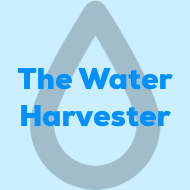Rainwater harvesting laws are regulated by individual states, with a lot of variation in the legal status of rainwater collection. In some states, rainwater collection is illegal, while in other states, it is encouraged with tax credits and incentives. In this article, we will explore the laws around rainwater harvesting in different U.S. states.
States Where Rainwater Harvesting is Legal with No Laws or Restrictions:
Alabama, Alaska, Connecticut, Delaware, Florida, Hawaii, Idaho, Illinois, Indiana, Iowa, Maine, Maryland, Massachusetts, Michigan, Minnesota, Mississippi, Missouri, Montana, New Hampshire, New Jersey, New Mexico, New York, North Carolina, North Dakota, Ohio, Oregon, Pennsylvania, Rhode Island, South Carolina, South Dakota, Utah, Vermont, Virginia, Washington, West Virginia, Wisconsin, and Wyoming.
The states that offer incentives for rainwater collection are:
- Delaware
- Florida (several local municipalities)
- Maryland (some counties)
- New Jersey (Capture, Control, and Conserve Reward Rebate Program)
States with Restrictions or Regulations on Rainwater Harvesting:
Arkansas: Harvested rainwater can be used for non-potable purposes with some minor restrictions.
Arizona: House Bill 2830 allows cities and towns to establish a fund for rainwater harvesting systems.
California: The Rainwater Capture Act of 2012 states that residential, commercial, and governmental landowners may install, maintain, and operate rainwater capture systems for specified purposes. In Los Angeles, the Low Impact Development ordinance requires new buildings to install rainwater harvesting systems. Projects over a certain size must have their rainwater collection systems approved by the city.
Colorado: Residents are allowed to collect rainwater in two rain barrels with a combined capacity of 110 gallons for outdoor use only on the property where it was collected.
Georgia: Rainwater harvesting is closely regulated by the Department of Natural Resources in the Environmental Protection Division and must be used for outdoor purposes only.
Illinois: Plumbing-Rainwater Systems Bill SB0038 states that collected rainwater can only be used for non-potable purposes and must be constructed in accordance with the Illinois Plumbing Code.
Kansas: No permit is needed for rainwater harvesting as long as its only for domestic purposes such as household use, livestock, lawns, and gardens.
Louisiana: State statutes require covers for large collection tanks (cisterns).
Nevada: Rainwater collection is allowed under a water right grant, which must be used for intended purposes.Otherwise, rainwater collection is illegal.
In conclusion, the legality of rainwater harvesting varies greatly between states in the U.S. Some states have no restrictions or regulations, while others have specific laws and guidelines in place. Understanding the laws in your state is important to ensure that you are harvesting rainwater in a legal and responsible manner.
